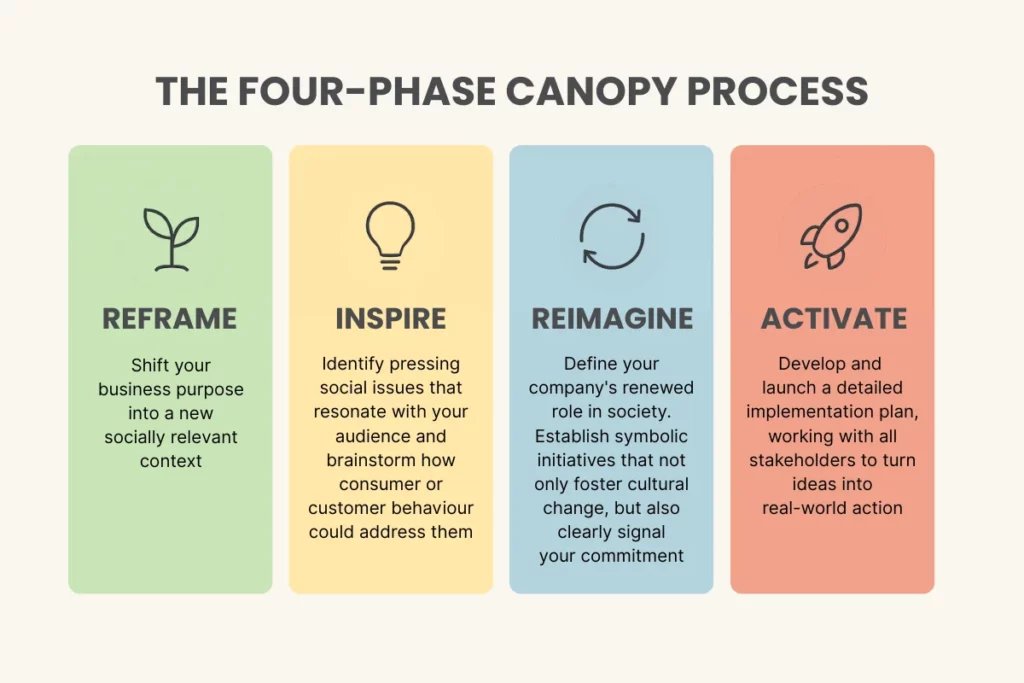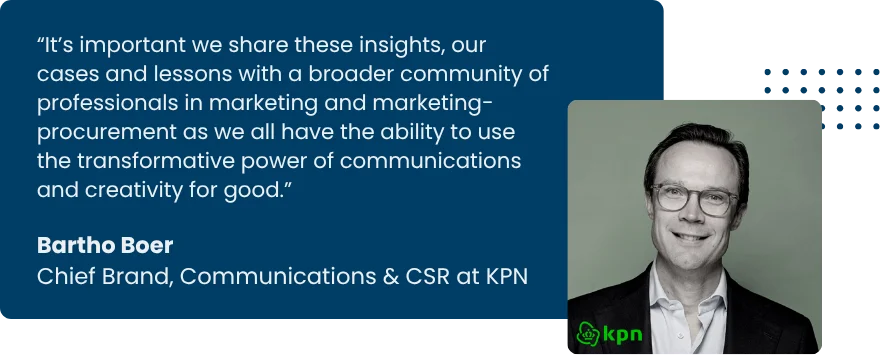When was the last time your telecom provider made you feel something?
Was it a surprise charge on your bill? A dead zone where 5G should be? Or, more unexpectedly, a campaign that made you think, “Wow, this brand actually stands for something”? As concerns about mental health and digital safety grow, especially among younger generations, telecom brands are starting to show they care about more than just coverage and cost.
Telecom brands are moving from infrastructure to identity

Examples speak louder than missions statements
Let’s look at what’s happening on the ground:
- Vodafone’s “everyone.connected” campaign is tackling digital exclusion in the UK head-on, helping more than 1 million people get access to free connectivity and devices. That’s the real impact, not corporate lip service.
- AT&T has committed $5 billion to help 25 million Americans bridge the digital divide by 2030, funding Connected Learning Centers, digital literacy programs, and discounted broadband access.
- KPN’s “A Piece of Me” campaign is an initiative tied to its #BetterInternet mission. It didn’t just raise awareness about online safety, but it have also helped to influence Dutch legislation on image-based abuse.

- Magenta Moments – without a catch — The benefits and gifts at Magenta Moments are hand-picked and are among the best offers on the market. They are now increasingly focusing on “shareable gifts & experiences” aiming to facilitate real connections between humans. The loyalty program is available to all Deutsche Telekom residential customers and can be redeemed with just a few clicks via the App, no catches or hidden conditions.
- Telstra’s “Young & Connected” aims to empower 1 million young Australians by 2030 with safe, equitable digital access. Partnering with 11 charities and co-designed with youth, the program focuses on three pillars: boosting STEM skills, promoting online safety and wellbeing, and improving access to devices and connectivity. It’s a step toward digital inclusion for the next generation.
This isn’t “woke washing”, but a strategy. These campaigns are boosting brand equity, unlocking new loyalty, and in some cases, even moving policy.
And the data backs it up:
👉 High-purpose brands are growing 4× faster in value than low-purpose brands (Fortuna Advisors).
👉 66% of consumers are willing to switch brands for one that aligns with their values (Cone/Porter Novelli).
👉 And loyalty? It’s increasingly emotional — built on trust, not just transactions.
Loyalty leaders: this is your playing field.
For those of us working in customer strategy and loyalty, this opens up powerful questions:
- How are we embedding purpose into our CRM and loyalty programs, and not just our brand campaigns?
- Can we reward customers for sustainable behaviour, community support, or digital wellbeing, and not just purchases?
- Are we turning our brand’s purpose into participation.
Because here’s the truth: a brand’s values don’t live in its ads. They live in its decisions and in how customers experience those decisions every day.
Final thought: Purpose Is the New Price of Admission
In today’s telecom landscape, connectivity is just the starting point. What truly sets brands apart isn’t signal strength or gigabytes, but the strength of their convictions and the impact of their actions. The campaigns from Vodafone, Telstra, KPN, and others prove that purpose isn’t a PR exercise; it’s a competitive strategy. One that drives business performance, earns lasting loyalty, and addresses some of society’s most urgent challenges.
Because in an industry that underpins how the world connects, communicates, and progresses, there’s no neutral ground. Every decision either reinforces trust or erodes it. Loyalty is no longer just transactional. It is becoming every day more emotional, ethical, and earned.
So, as telecom brands move beyond selling access to becoming stewards of digital life, the question isn’t if they should lead with purpose. It’s how quickly they can do it before consumers, employees, and stakeholders choose brands that already are.
The future of loyalty is purposeful. And the brands that act with courage and clarity today will be the ones we remember — and stick with — tomorrow.
Simon Tavernier
CEO & Co-Founder at Stampix
Subscribe to our Newsletter
Subscribe to receive our exclusive insights and events before everyone.
Start building a program that sparks joy and drives results.

Subscribe to our Newsletter
We promise we won’t flood you with emails! Every two months we will send you an insightful newsletter with marketing and loyalty news, interesting blogs and new product releases.


